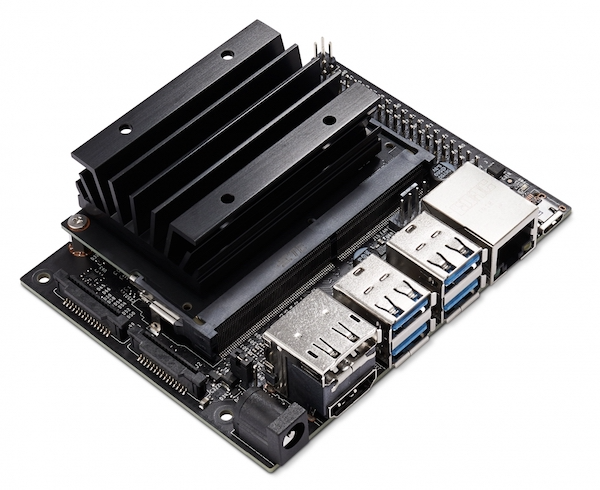
The Nvidia Jetson Nano represents a powerful step forward in the world of AI. For $100, developers receive an Arm-based computer with enough graphics processing power for AI and Machine Learning applications. With it, you can run multiple neural networks in parallel for applications like image classification, object detection, segmentation, and speech processing.
While impressive, it wasn’t the primary reason why I got myself a kit. Back in July, I came down with a nasty case of COVID-19. While my symptoms were mild, I know that the variance of symptoms for others can be massive. It kills and hospitalizes some, while others don’t even know they have it. Many of us feel powerless in the face of such a microscopic evil, and we know that only medical professionals are equipped with the knowledge and resources to medically combat COVID-19.
There is something we can do. Anyone with a computer can volunteer that computer’s time and computational resources to help medical researchers tackle some of the world’s most pressing medical challenges. It’s a process called “protein folding.” I can’t accurately speak to the technical details of what protein folding is, but here is a bit of an explanation from Rosetta@Home, which is one of the platforms that utilizes this form of distributed computing:
The function of a protein and how it interacts with other molecules are largely determined by its shape (the three-dimensional structure). Proteins are initially synthesized as long chains of amino acids and, for the most part, they cannot function properly until they fold into intricate globular structures. Understanding and predicting the rules that govern this complex folding process -- involving the folding of the main backbone and the packing of the molecular side chains of the amino acids -- is one of the central problems of biology. Knowing how proteins fold and interact with other molecules and determining their functions may ultimately lead to drug discoveries and cures for human diseases. Currently, millions of dollars are being spent to determine the structures of proteins experimentally using X-ray crystallography and nuclear magnetic resonance (NMR). If this could be done computationally, it would significantly reduce the cost and revolutionize structural biology. Designing protein structures and complexes also offers significant scientific and practical benefits. If one can design completely new structures, one can potentially design novel molecular machines -- proteins for carrying out new functions as therapeutics, catalysts, etc. And finally, there's the evolutionary question of whether the folds that are sampled in nature are the limit to what's possible; or whether there are quite different folds that are also possible. Understanding the rules that govern folding and design may help answer this question.
Ultimately, this system of distributed computing helps researchers discover solutions to medical problems at light-speed, and being a volunteer is incredibly easy and rewarding! I have Rosetta@Home set up on my Jetson, as it supports computing on ARM-based processors. My Jetson is hard at work 24/7, computing on all four of its cores with an average computation time of 8 hours per job. To date, the computers on my network have completed over 52,000 individual jobs. Rosetta@Home combines the power of more than 54,000 individual computers to reach a performance of around 1.7 petaFLOPS, which means it can handle 1.7 quadrillion floating-point operations per second. That’s a lot! The Summit Supercomputer at the Oak Ridge National Laboratory clocks in at around 200 petaFLOPS, but it also uses 13 Megawatts and costed $200 Million to install. By comparison, Rosetta@Home uses only the power that your home computer would normally use, and exists on hardware that you already have.
COVID-19 made me feel powerless. It makes all of us feel powerless. Distributed computing gives us the power to make an impact. Please consider installing Rosetta@Home, or Folding@Home, which works on Mac and Windows using x86 architecture (Intel and AMD processors). When I was in Nashville this past March in the aftermath of the tornado that devastated parts of Germantown, I witnessed hundreds of volunteers help the people and families effected. We can do the same thing with nothing more than our computers.
Back to Projects